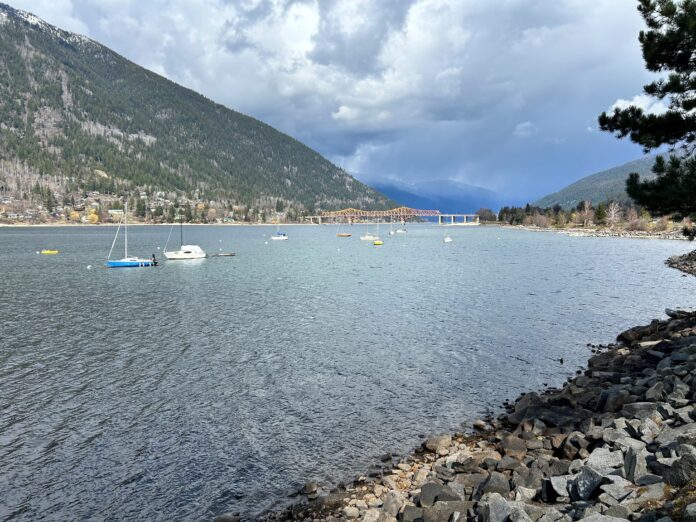Josie Osborne, Minister of Energy, Mines and Low Carbon Innovation, and Brittny Anderson, MLA for Nelson-Creston, met with community climate leaders in Nelson to discuss how Budget 2024 can help support people in the region to transition to a low-carbon economy and meet shared CleanBC goals.
“Our government’s budget this year reflects the strong action we must take to achieve our CleanBC emissions goals and create sustainable jobs for British Columbians, while transitioning to a low-carbon economy,” said Osborne.
“Funding for these climate programs is so much more than a line item in a budget. It’s an investment for a clean and healthy future for our children and grandchildren.”
Osborne and Anderson held discussions with local climate leaders about the issues that affect people in local communities and throughout British Columbia, and how the climate programs in this year’s budget can help address key concerns and benefit more people.
In addition to climate action, Budget 2024 prioritizes measures to help make life more affordable for people in British Columbia. The B.C. Electricity Affordability Credit will give people a break on their electricity bills by helping households save an average of $100 over the course of the year based on their prior year power usage.
“People in our communities are seeing and feeling the impacts of climate change right now,” said Anderson.
“As British Columbians, we all have a shared responsibility to work toward our climate goals, and our government is committed to leading the way in the transition to a cleaner economy.”
Budget 2024 also reaffirms the Province’s climate-action commitment with $318 million to continue to fund grant and rebate programs for clean transportation, energy-efficient buildings and communities, and support the transition to a low-carbon economy.
In addition, another $90 million will help people and communities reduce emissions:
- $40 million for additional heat-pump rebates for households with low and middle incomes to provide access to affordable, clean energy;
- $20 million for active transportation grants to communities; and
- $30 million to continue the implementation of electric-vehicle public charging infrastructure.
This year, the Province launched the first phase of a new made-in-B.C. Critical Minerals Strategy to build a clean economy by expanding the critical minerals sector in alignment with the B.C. Declaration on the Rights of Indigenous Peoples Act. In addition, B.C. has made significant progress on exploration-permitting timelines, including a 52% reduction in the backlog of permits.
Budget 2024 reaffirms commitment to a low-carbon economy with $24 million ensuring resources stay in place to continue to reduce permitting backlogs, enabling access to the critical minerals needed to produce components in clean-energy products, such as electric vehicles, solar panels, wind turbines, electrical transmission lines and batteries.
“Decarbonizing our energy system will not be easy but I believe Minister Osborne and MLA Anderson, representing a new generation of leadership in B.C., are up to the task,” said Rik Logtenberg, councillor, Nelson.
“Over the years, I’ve watched them tackle climate change head on with urgency and compassion and the candid dialogue at the forum provided clarity regarding government’s pathway to a clean-energy future.”
B.C. is taking action to build a cleaner, stronger economy in partnership with First Nations and industry, while training people for in-demand jobs and creating more opportunities. B.C. continues to lead on climate action and sustainable job growth through the CleanBC Roadmap to 2030.
Quick Facts:
- Under the B.C. Electricity Affordability Credit, commercial and industrial customers will also receive savings for as much as 4.6% of their electricity consumption. The average small business will save $400 yearly.
- People and businesses will see the credit on their bills starting in April 2024.
- Phase 1 of the critical minerals strategy was announced in January 2024.
- Critical minerals, such as copper, nickel and molybdenum, are essential components in products used for clean energy, such as electric vehicles, solar panels, wind turbines, electrical transmission lines and batteries.
Be the first to know! Don’t miss out on breaking news and daily updates in your area. Sign up to MyNelsonNow News Alerts.







